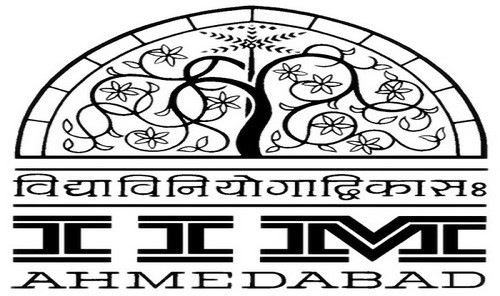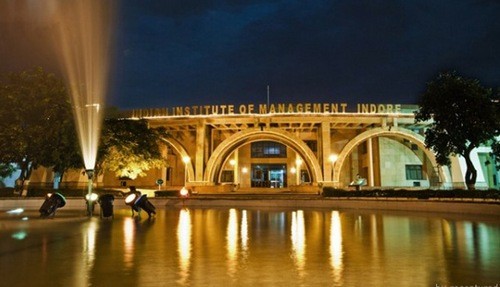The Marketing mix of IIM analyses the 4Ps of IIM, including the Product, Price, Place, and Promotions. Indian Institutes of Management are commonly referred to as IIM and, as the name suggests, are based in India. They are autonomous by nature and offer research and management education. Prime Minister Jawaharlal Nehru initiated the establishment of various IIMs in India after the Planning Commission recommended it.
These are now registered as societies and companies with independent control over daily operations. Education is a service sector, and the education system is one of the major contributors to a country’s economic rise and prosperity. Various other similar institutes are as follows-
- Indian Institute of Technology or IIT
- Birla Institute of Technology and Science or BITS
- All India Institute of Medical Science of AIIMS
- National Institute of Information Technology or NIIT
About IIM
- Type: Public business school
- Industry: Education
- Founded: 1961
- Founder: Government of India
- Headquarters: Ahmedabad, India
- Area served: India
- Key people: N. R. Narayana Murthy (Chairman) Sameer Barua (CEO)
- Number of employees: 1,200+
Table of Contents
IIM Product Strategy
The Indian Institutes of Management (IIMs) are India’s premier institutions for management education. They offer a diverse product mix in terms of educational programs and services.
The new Product Mix of IIM in 2023 is as follows (Source).
- Postgraduate Programs in Management (PGP): The flagship two-year full-time programs offer a comprehensive curriculum in general Management. These are equivalent to MBA programs and are highly sought after.
- Executive Postgraduate Programs (EPGP) are typically one-year full-time programs designed for mid to senior-level professionals. They focus on imparting advanced business and management skills.
- Fellow Program in Management (FPM): Equivalent to a Ph.D., the FPM is a doctoral program aimed at developing research skills in various aspects of Management. It’s designed for students seeking careers in academia or research.
- Executive Education Programs (EEP): These short-term, part-time, or modular programs are tailored for working professionals. They focus on leadership, strategy, or finance, offering opportunities for skill enhancement and career advancement.
- Five-Year Integrated Program in Management (IPM): Some IIMs offer an integrated program combining undergraduate and postgraduate management studies. This program is aimed at students who have completed their 12th standard.
- Specialized Masters and Sectoral Programs: Certain IIMs offer specialized master’s programs or sector-specific courses like Agri-Business Management, Energy Management, Public Policy, etc., catering to niche areas and sectors.
- Online and Certificate Courses: With the advent of digital learning, many IIMs have started offering online courses and certification programs in various management disciplines, making education more accessible.
Each IIM may have program offerings and specialization variations, reflecting its individual focus areas and expertise. These institutions continually update their program mix to meet the evolving demands of the business and technology world and the aspirations of their diverse student body.
IIM Place Strategy
The Indian Institutes of Management (IIMs) employ a strategic approach to their location and accessibility, which is vital for their reputation as premier management education institutions. Here’s an overview of their place strategy:
- Pan-Indian Presence: The IIMs are strategically spread across various regions of India. This geographical distribution allows them to cater to a diverse student population and address regional educational needs while leveraging local industry connections.
- Campus Infrastructure: Each IIM boasts a state-of-the-art campus with modern facilities, including high-tech classrooms, libraries, and residential areas. These campuses are designed to provide an immersive educational environment conducive to learning and research.
- Accessibility and Connectivity: IIM campuses are typically located in or near major cities or towns, ensuring easy accessibility and good connectivity. This location strategy makes visiting faculty, industry experts, recruiters, and international collaborators convenient.
- Digital Presence and Online Learning Platforms: Recognizing the importance of digital reach, many IIMs have established a solid online presence. They offer online courses and use digital platforms for broader accessibility, catering to students and professionals who cannot attend on-campus programs.
- Collaborations and Exchange Programs: IIMs have numerous collaborations with universities and institutions globally. These partnerships facilitate student and faculty exchange programs, enhancing the global exposure of students and the overall diversity on campus.
IIM Pricing Strategy
The Indian Institutes of Management (IIMs), as premier educational institutions in India, adopt a sophisticated pricing strategy for marketing their range of programs. This strategy balances the need to maintain their elite status and the mission to provide accessible education. Here’s a breakdown of their approach:
- Premium Pricing for Flagship Programs: IIMs set a premium price for their flagship Postgraduate Programs (PGPs) in Management. These prices reflect the high value of education, the prestige of the degree, and the significant return on investment regarding career opportunities and salary prospects post-graduation.
- Differential Pricing Based on Program Type: Different programs at IIMs, such as Executive Education, Fellow Programs, and Short-term courses, have varied pricing structures. This differentiation is based on the target audience, course duration, and the nature of the curriculum, ensuring that each program is priced according to its specific value proposition.
- Financial Aid and Scholarships: To promote inclusivity and ensure that talented students from all economic backgrounds have access to education, IIMs offer a range of scholarships and financial aid options. This approach allows them to maintain high program fees while not excluding deserving candidates based on financial constraints.
- Dynamic Pricing for Online and Certificate Courses: IIMs often adopt a more dynamic pricing strategy for their online and certificate courses. This is to cater to a broader audience, including working professionals and international students, making these programs more accessible than their full-time courses.
- Annual Fee Revision: The fee structure for programs at IIMs is subject to periodic revision. This ensures that the pricing remains competitive, reflects the current economic conditions, and aligns with the rising costs of providing world-class education and facilities.
By employing this multifaceted pricing strategy, IIMs successfully position themselves as elite educational institutions offering high-value programs while committing to educational accessibility and diversity.
IIM Promotion Strategy
IIM is one of India’s most popular educative institutions and caters to the needs and wants of lakhs of students through its qualitative products. It has taken several steps to promote its institute and its diploma course. IIM has reserved 15% of its seats for students belonging to Scheduled Castes, and for Scheduled Tribes, it has reserved 7.5% of its seats. After a directive by the Supreme Court, IIMs gave 27% reservation seats to Backward Classes; students or aspirants must appear and pass their Common Admission Test or CAT Exam. The institute offers financial support to deserving and needy students by providing scholarships.
Some Recent Video ads and Print ads of IIM are:
https://youtu.be/YU_1BkLE8HY
Liked this post? Check out the complete series on Marketing Mix

